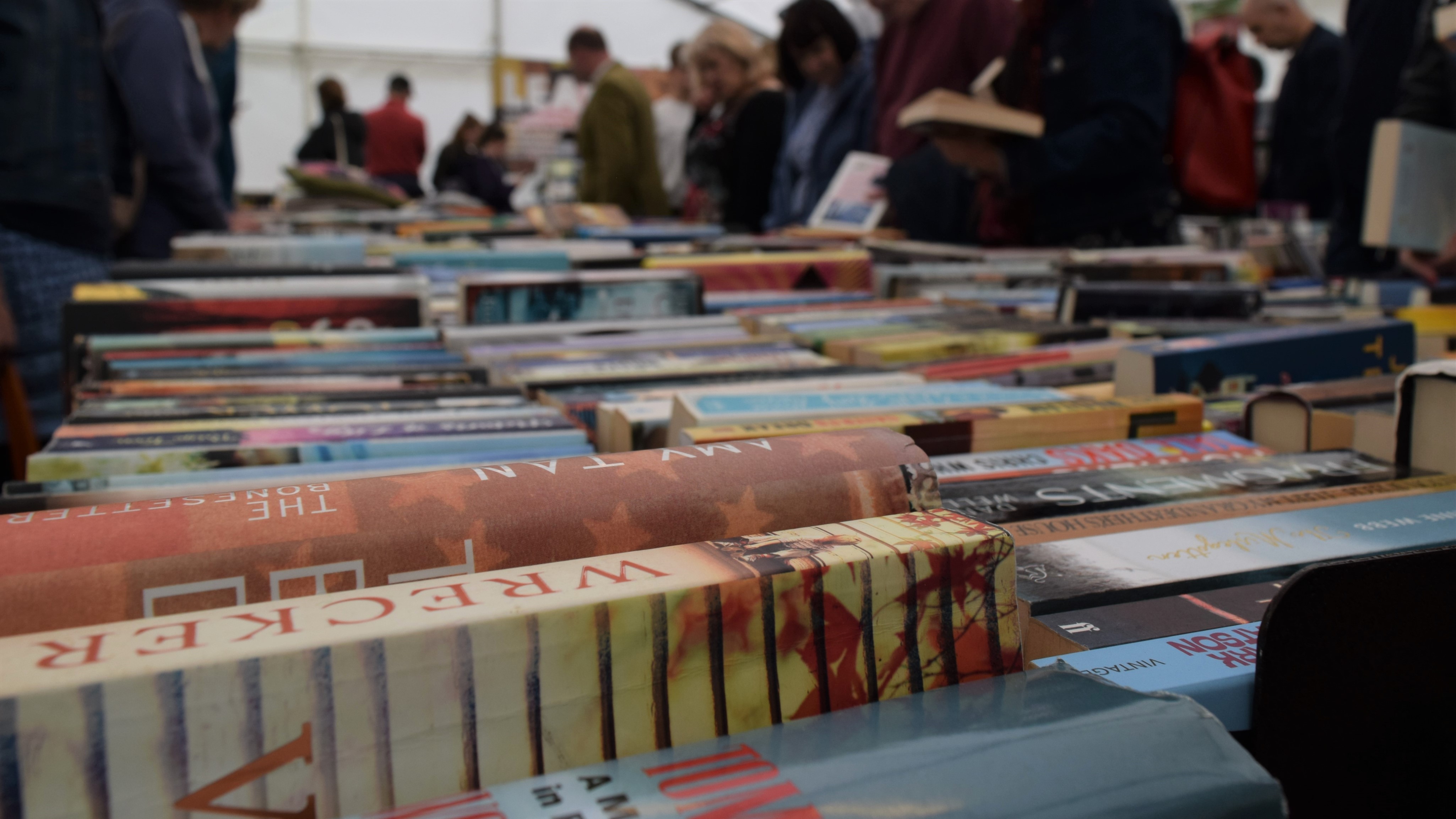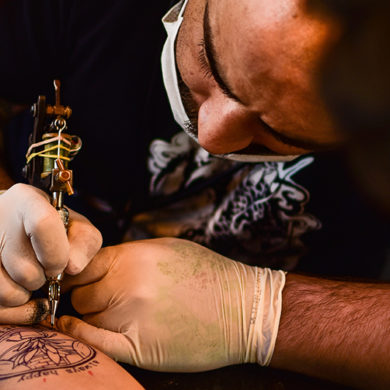In 2019, are people still going to books to escape, or has digital technology become too dominant in our lives?
A sudden chill draws me out of my reverie. I glance up to notice that the sun has disappeared behind a rather large cloud.
I check my watch, startled to see that it’s already been two hours, and all I’ve done is move from the front of my book to about one-third of the way through.
It’s the first time in a long time that I’ve simply sat and read a book, sans music, sans phone, sans any type of technological distraction, and as I look around, I’m surrounded by people doing the same exact thing.
I feel as though I should be doing something else, but the sound of pages turning all around me entices me back to my book. After all, it is the Hay Festival.
For these next couple days, the books come first.
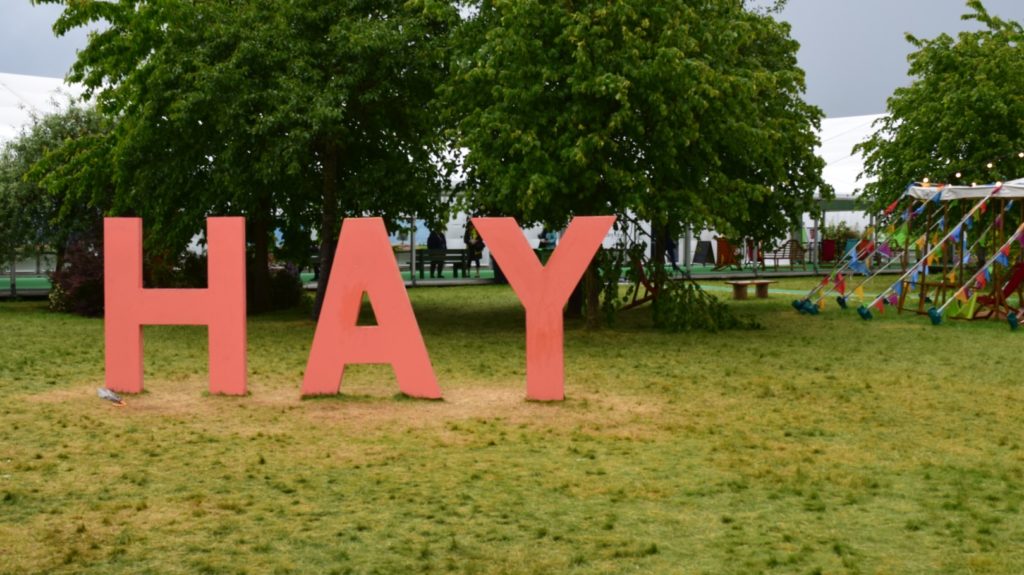
Hay Festival
Known for its books and literary speakers that come across the globe, the Hay Festival first began in 1988 in the small town of Hay-on-Wye, in Wales. Since the 1960s, Hay-on-Wye had been known as the “town of books,” and thus seemed the perfect place to have an annual celebration of books.
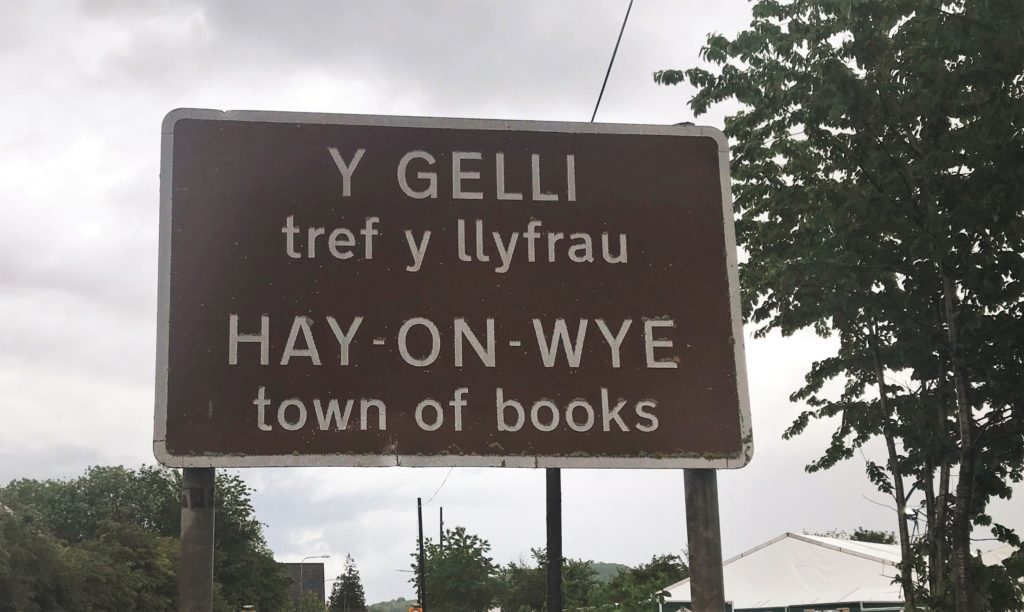
Today, the festival runs for 11 days, has over 600 events (for all ages) and now hosts a Winter Weekend as well as several international festivals.
There is something for everyone, from geology walks, to writer’s workshops, book stores and artisanal cider, even a tent for arts and crafts!
As a life-long bibliophile, I had heard about the festival on several occasions, and so when the opportunity presented itself to go visit the famed event…well, I just had to go.
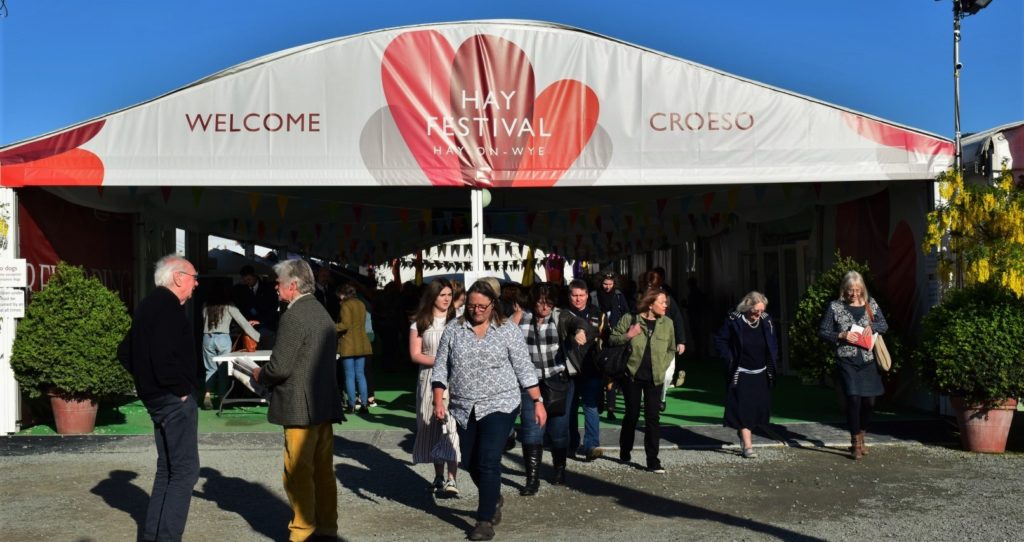
Within moments of stepping through the entryway, I felt instantly at home. People all around me were carrying books, discussing the different events that were going on that day and making their way to the large gardens spaced throughout the festival to relax and read a book.
Immediately to my right when I entered the festival space was the Oxfam booksellers tent, full of £3 books and of people.
As I continued around the tented festival area, I discovered a number of stages, the food court (featuring many local farmers), a number of local shops where you could stock up on anything from hiking boots to free cherry trees, and where there weren’t shops, there were spots where people were reading.
Okay, maybe I’m exaggerating slightly, but, with three specific gardens dedicated to people’s reading enjoyment and lovely lawn chairs set up everywhere, there were far more people sitting down to read than I had expected to see.
For a virtual tour of the Hay Festival and a couple of the main sites at the festival, click on the tour above. It is best viewed through VR headset or on a phone. Use the interactive buttons to click through to the different parts of the festival. You can always return to the main site by clicking on the “Home” button in each scene.Surfing the web, or reading a book?
Tyler Shores, a researcher at Cambridge University and one of the speakers at this year’s festival, is currently researching what it means to be a reader in today’s age of what he calls “digital distraction.”
“I wonder if digital distractions do come at an expense, specifically the experience [we] have of getting lost in a good book,” said Shores. “I mean like really, really lost, like you know when getting caught up in wondering and worrying about what happens to a character in a novel.”
Some of what Shores’ talk, called “Reading in an Age of Digital Distraction,” focuses on is whether or not individuals are losing this ability to truly get lost in a book.
There’s something about that physicality that gives you a fresh new look at the place, a fresh new interpretation of the text.
Damien Walford Davis, Wales: A Tapestry of Literature and Landscape
Between social media notifications pinging and emails coming through even on weekends, where does losing oneself in a book for a couple of hours fit into daily life?
“The big tech companies, the Facebooks and the Googles and Apple and whatnot want you to spend as much time and attention on it as possible,” said Shores.
Though he was quick to add he’s not anti-social media, part of his talk encourages people to consciously use social media and technology, to not simply scroll endlessly and evaluate how they feel while using social media.
“The questions I’ll sort of ask at the festival is why am I checking my Instagram right now? Do I need to? Does this make me feel better, does this make me feel worse? How do I feel after spending hours on Reddit when I should have gone to bed at 11:30?” said Shores.
The festival site did offer free WiFi for guests, as well as a charging station at the dining hall. The campsite where I was staying offered free charging, where phones and e-readers would often sit side-by-side with printed books.
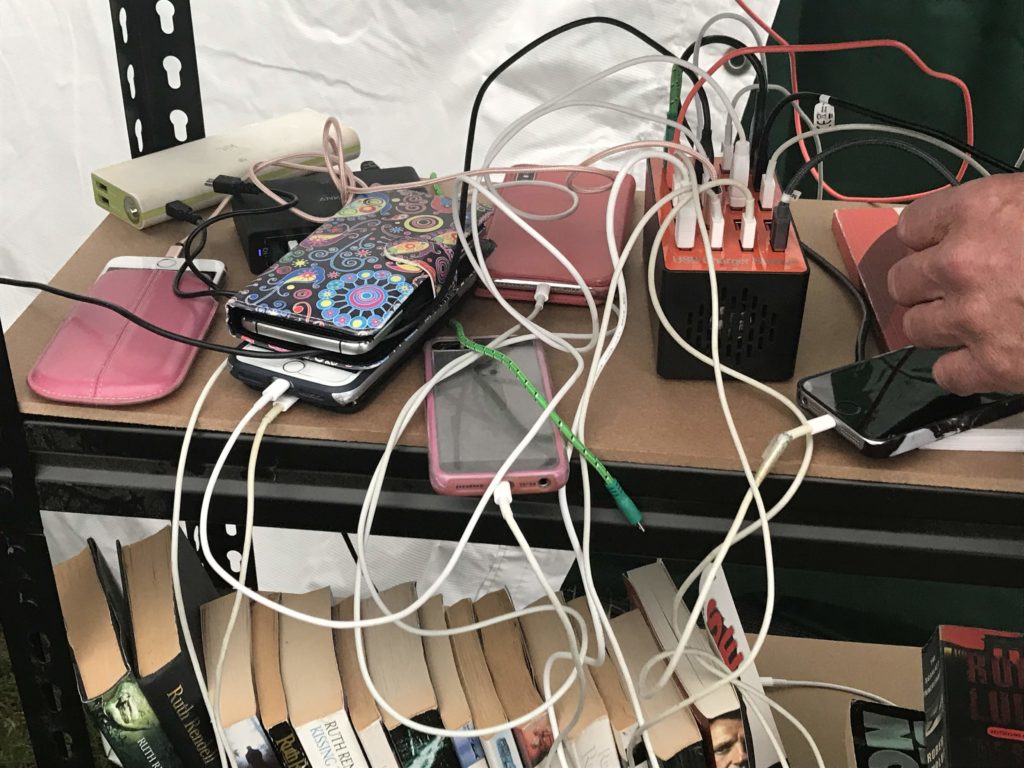
As I wandered around, I did see a good number of people on their phones or using e-readers or tablets to read, but even more were toting around printed books or grabbing free bookmarks from vendors to mark their places.
The festival bookstore was consistently full of people, waiting in line for author book signings or simply browsing, selecting books off shelves and shuffling through the pages until they came across something interesting.
At least for this week, it appears people are choosing print over digital.
Print or E-book?
As of 2018, there were some estimates that Amazon had sold as many as 90 million Kindles, but more recent estimates suggest that the popularity of e-readers like the Amazon Kindle and the Barns and Noble Nook have declined in favour of printed text.
“People want something they can hold, they want something that, they want to engage more with the text. And I think you can engage more with a book, with a printed magazine than you can with the text being downloaded,” said Adrian Edwards, the head of printed heritage collections at the British Library and a speaker at the Hay Festival.
Publishing every-day writing, in terms of say novels, popular science books, history stories, it seems to have balanced out.
Adrian Edwards
Edwards was one of the lead researchers for an exhibition at the British Library titled “Writing: Making Your Mark” that runs May-August 2019 and explores the history of written texts.
In his talk, titled the same, Edwards spoke about how the advancement in technologies since the creation of writing has shaped the way people interact with text, from early Canaanite letters all the way to what the future has in store for writing.
“I’m optimistic,” said Edwards about the future of the written word. “The arrival of new tools and technologies does not oust the methods already present. It’s [writing] future will be determined by the way we use it.”
The future of books?
After spending three (mostly sunny) days at Hay, I feel fairly confident in saying that there is a future to the physicality of books.
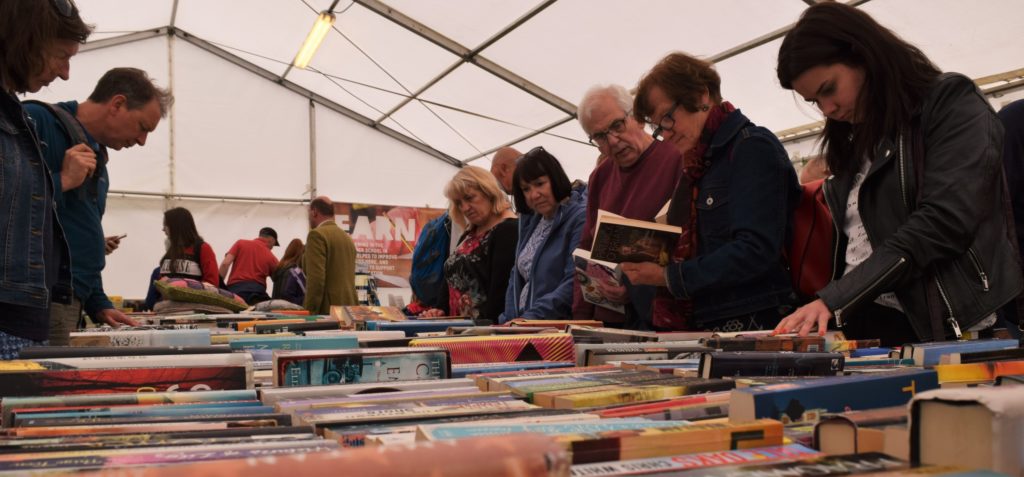
For every e-reader I saw, there was someone else opening up a newly-purchased book, for each cell phone out at the cafeteria, I saw a person discreetly trying to wipe off food that had landed on their latest acquisition.
At the festival bookstore, people were constantly rotating in and out, buying books, waiting in line for a signed copy or simply sitting in the reading space to enjoy a moment with a book.
While I’m not likely to give up technology any time soon, these past couple days at Hay have reminded me of the importance of books and reading in my life, something that I plan to make a priority over my digital distractions.
“We’re talking about reading books — and by reading books I mean printed books or reading books on a Kindle or iPad,” said Shores. “I think they’re one of the few remaining oases that we have.”
